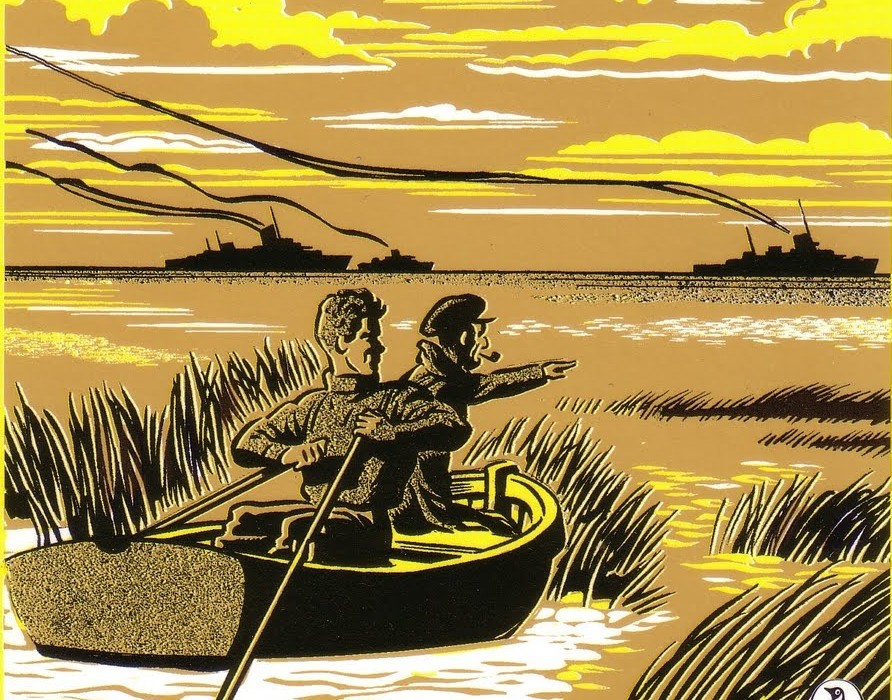
Perhaps one of the earliest examples of spy fiction, the Riddle of the Sands had a profound impact when it was published, stirring up early 20th century anxieties in Britain, who had already been sensitive to their diminishing empire, and an expanding Germany that stood poised to surpass the English imperial power, by calling attention to what the author believed were insufficient defenses along the North Sea coast. Robert Erskine Childers in fact provides a window into the period’s psyche, allowing the reader to appreciate just how these European nations were already on track for their confrontation in the Great War, and thanks to its marketing as being based upon “true events,” is responsible for the formation of an investigative unit that would become MI5, not to mention the strengthening of the cited coastline.
Even though the actual “spy” story doesn’t take place until the latter third part of the book, initially starting out as the adventures of two Englishmen sailing around the Frisian Islands in something more reminiscent of the Odd Couple, the book does move along, despite the language being a little tough at times; especially the nautical sections. However if you’re a boating enthusiast, I’m sure it’d be an entertaining read.
Our heroes are an urbane civil servant and his more blue-collar childhood friend who invites the bureaucrat to join him for some “yachting.” However the truth about why Davies contacted Carruthers is finally revealed, with the duo having to decide just how far they should go pursuing answers to their growing questions. Like most spy thrillers the protagonists represents the type of individuals their respective period perceived necessary for safeguarding the nation, which Childers believed was the cooperation between the upper and lower classes of Britain to deal with the looming threat of German invasion. Even though this was his first and only novel, it’s clear that it successfully galvanized a fearful nation to action, and is definitely worth the read, even if just to better understand the tensions that contributed to WWI.
![The Knights of Malta: Life after Malta [Repost]](http://www.cultureaddicthistorynerd.com/wordpress/wp-content/uploads/2013/10/Hospitalers-e1382231799525-150x150.png)
![Abridged history: Niagara Falls tourism [Repost]](http://www.cultureaddicthistorynerd.com/wordpress/wp-content/uploads/2014/06/skywheel-closeupfeature-150x150.jpg)


![Illegal Alien by Robert J. Sawyer [Review]](http://www.cultureaddicthistorynerd.com/wordpress/wp-content/uploads/2015/10/illegal-alien-150x150.jpg)



































